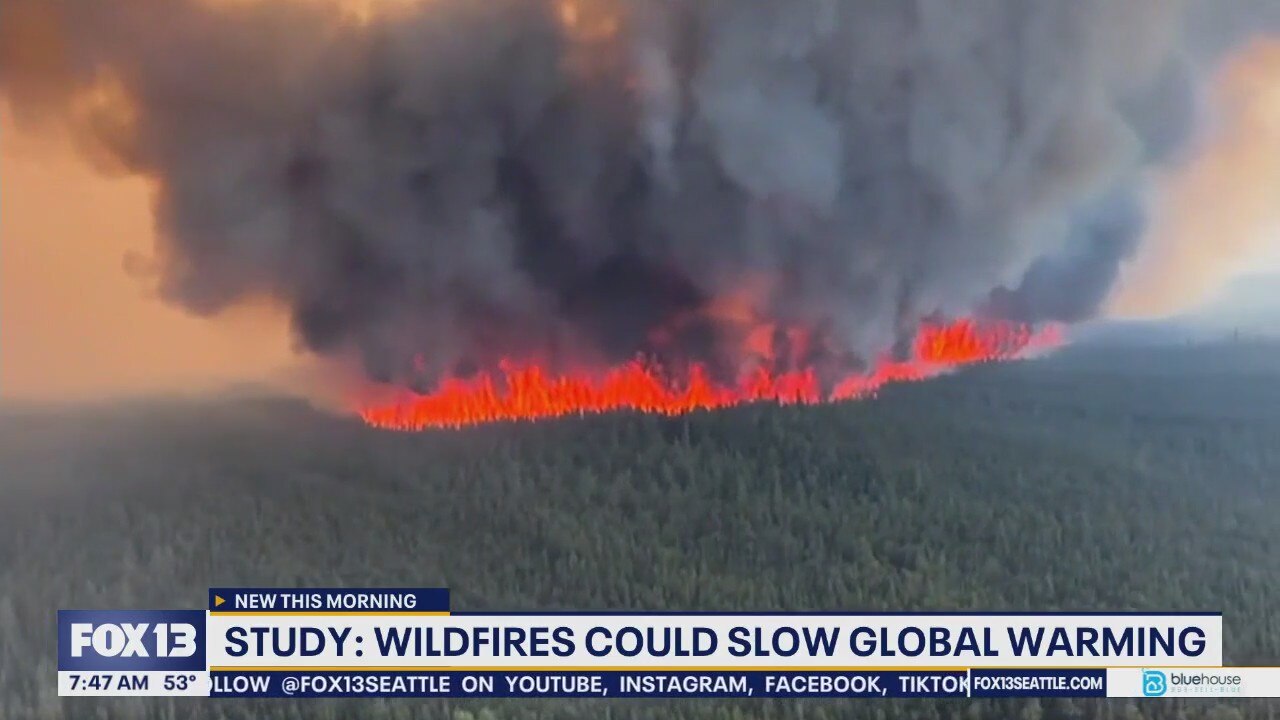UW study reveals how some wildfires could slow global warming

Wildfires could slow global warming, according to new study
A new study says increasing wildfires in Canada and Siberia could actually slow global warming. FOX 13 Meteorologist Abby Acone explains the research conducted by the University of Washington.
SEATTLE - New data from the University of Washington shows that increasing wildfires in Canada and Siberia could actually slow global warming – at least temporarily.
The research, led by UW, focused on wildfires in boreal regions – which are subarctic climates found in the far Northern Hemisphere. Boreal forests primarily cover areas in Canada, Alaska and Russia.
Local perspective:
Here in Washington state, we know all too well that smoke from these wildfires, even those in Siberia, can travel thousands of miles and impact our air quality. You may recall in 2023, places like New York City were engulfed in haze from Canadian fires.
According to UW's analysis, over the next 35 years, an expected surge in boreal fires could slow global warming by 12% globally and by 38% in the Arctic.
How can boreal wildfires cool the Earth's atmosphere?
Aerosols in wildfire smoke reflect sunlight and make clouds brighter, which cools the atmosphere. This process can also contribute to reduced sea ice loss and cooler winter temperatures.
All of this comes despite researchers' expectation that boreal fires will continue to increase due to climate change. However, recent climate projection models have not factored in this potential uptick in boreal fire activity.
The study's author says that going forward, climate models should include the effects of surging boreal wildfires.
What is the difference between global warming and global climate change?
According to the U.S. Geological Survey (USGS), global warming refers specifically to the rise in global temperatures. Global climate change refers to broader shifts in climate indicators such as temperature, precipitation and wind patterns over a long period of time.
Big picture view:
Importantly, researchers caution that if wildfires continue to increase, they could burn through boreal forests entirely, which would ultimately reverse the cooling effect. So, while the study suggests a temporary slowing of global warming, it is not necessarily good news.
These fires still pose serious risks to human health and forest biodiversity.
The Source: Information in this story came from a release by UW News, the U.S. Geological Survey and original reporting by FOX 13 Seattle.
MORE NEWS FROM FOX 13 SEATTLE
WA deputies urge vigilance as Travis Decker search continues in Kittitas County
Manhunt for Travis Decker update as WA search nears its 3rd week
Man arrested for security threat onboard aircraft at Seattle airport
19-year-old dies in drowning at Eagle Falls in WA
1 dead after reported shooting on I-5 in Seattle near Boeing Field
Pedestrian killed by train along Edmonds, WA waterfront, ferry service impacted
How to watch FIFA Club World Cup in the US for free
To get the best local news, weather and sports in Seattle for free, sign up for the daily FOX Seattle Newsletter.
Download the free FOX LOCAL app for mobile in the Apple App Store or Google Play Store for live Seattle news, top stories, weather updates and more local and national news.

